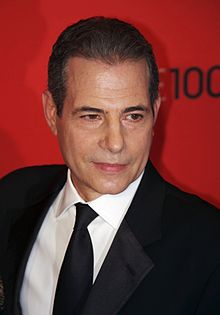
Journalism can never be silenced; it must
speak, and speak immediately, while the echoes of wonder, the claims of triumph
and the signs of horror are still in the air.” This famous statement was made by Henry
Anatole Grunwald, an Austrian-born managing editor of TIME magazine, and editor in chief
of Time, Inc.
A
countrywide peaceful demonstration by journos in protest of slain fellow Daudi
Mwangosi of Channel Ten on Tuesday morning tells all about how the journalists
whose duty is to inform the general public has been aggrieved distressed by
pusillanimous police acts.
The police crimes of killing the
journalists affect society’s ability to enjoy the basic human right of freedom
of expression. The death of a journalist in Iringa while on duty in a violent
circumstance is an attempt to silence the all-important voice of the press.
Daudi Mwangosi was brutally killed on
Sept 2, at Nyololo village, Mufindi South, in Iringa region in the hands of the
policy who, would otherwise protected him. Instead of adhering to their ethics,
the police turned killers.
Daudi Mwangosi is among more than 200
killed civilians between 2005 until September this year, according to Haroid
Sungusia of the Legal and Human Rights Centre (LHRC).
The
journalists, in their unity and solidarity defied morning chilly weather as
they started the peaceful demonstrations at Channel Ten headquarters, then, along
Asia
street through Jamuhuri street before entering Morogoro road towards Jangwani
grounds where they called on the police force and the government to respect
their work and observe human rights.
The
journalists also called on the government to make sure that it takes all those
involved in the brutal killings to court of law.
The journalists have made their stand clear. Respect
human rights and their work. Harold Sungusia, who is advocacy and legal reforms
director at LHRC released shocking statistics on how police could be brutal
against civilians who pay them salaries.
He said, the police force has killed more than 200
civilians between 2005 and September this year and the number could be more
than that because in 2005 is when the centre started documenting the killings,
little is known before that time.
The number of those killed excludes the 1998
Mwembechai area victims, when anti-riot police engaged with Muslims, or those
who died in 2001 in Zanzibar when police moved to thwart demonstrations staged by
CUF supporters who were protesting against the 2000 disputed presidential
election results.
Since then, the police force has been killing between
10 to 40 every year, a staggering figure, one would not think of. For example,
he said, in 2005 police killed 36 people where as on 2006, they killed 37
people. However, in 2009, they killed 10 people where as 52 people were killed
in 2010. Last year, police killed 26 people and until September this year,
police had killed 22.
These are just received cases, we don’t know how many
could have been killed in various places without our knowledge” he said.
The increasing barbaric
attempts to silence the media – and, by extension, the voices of citizens and
communities – must be firmly condemned and punished.
It is high time
the general public stood firmly and clearly alongside those courageous
journalists who, at great risk to themselves and those close to them, work
around the clock to keep Tanzanians and the rest of the world informed on what
is going on in all fronts of life so that they can make an informed decision.
Post a Comment